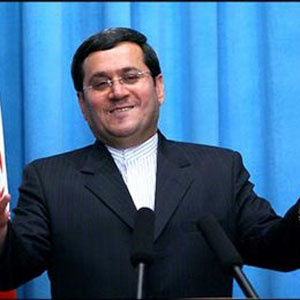When Analogies Break Down

Did Qashqavi’s reference to 2005 French unrest help to explain Iran’s situation? By Javad Mahzadeh.
In Iran, tu quoque is one of the most popular ways to answer questions. Such an argument clearly falls short of giving a clear answer to the question, not mentioning the pessimism it brings about. In his last press conference, Foreign Ministry spokesman Hasan Qashqavi draw on an analogy between Iran’s post-election turmoil and 2005 riots in France when faced with intermittent questions on Iran’s international image and Western states’ remarks.
Foreign media have closely followed Iran’s demonstrations in recent days and despite restrictions imposed by the Iranian government, have broadcasted news and images Iranian protestors have captured by their cell phones.
With all the world’s watchfulness on Iran besides its nuclear program and anti-Israeli stance, the media have a tendency stretch the truth. What aggravates the situation and adds to ambiguities is the crackdown on the media and critiques.
If the Iranian statesmen believe in the righteousness of their disciplinary and security measures, and regard foreign opposition as conspiracy, then what is the need for expulsion of foreign correspondents, breaking camera lenses of Iranian photographers and monitoring the headlines of pro-reform newspapers?
Iranian Foreign Ministry spokesman, who was apparently disgruntled with foreign media’s reports on Iran’s developments, pointed to 2005 riots in France and said: "the volume of violence after the death of two [immigrant] teenagers was really high, but did CNN and BBC provide special coverage on that event? Today, CNN is teaching ways to hack Iranian governmental websites and news agencies…if these are not intervention then what is? Unfortunately we are witnessing unprofessional journalistic activities".
Maybe it was better for the Iranian politician to avoid talking about hack of a governmental news agency while journalists have faced the toughest media restrictions and minimum of internet facilities in past week. Internet and cell phone use has turned into a forgotten memory in the past ten days. An opposition newspaper has been shut down and a considerable number of websites have been blocked merely for supporting opposition candidates. Many journalists have been arrested and satellite signals are disturbed.
Qashqavi mentioned France civil unrest while he never pointed out that during the riots Iranian TV broadcasted a myriad of distorted, apocalyptic reports and analyses about the event, and even when the commotion had tapered off, it kept on to show pictures of the early days of the riot, hailing the presumed fall of democracy.
Even during the civil unrest in France, full press freedom gave global media the chance to provide the highest volume of news and reports on the story. No hour passed without media reporting the new developments. We have not forgotten that the Iranian state-run TV displayed videos taken by foreign media.
Qashqavi also compared the behavior of Iranian security forces with their Western counterparts claiming that: "we should not forget that in Western countries which claim to have freedom, the police has often showed violent behavior, which you can compare to the tolerance of our police".
Despite the noticeable leniency of the Iranian police, it is noteworthy that several police officers and commanders were tried and convicted in France due to their treatment of protestors, even those who committed vandalistic acts.
Massive unrests of France in 2005 are unforgettable. One provocative remark was made by then interior minister, Nicholas Sarkozy, who had called the protestors racaille (scum). His blunder was quickly responded by the French prime minister Dominique de Villepin who said that hooligan should not be confused with a majority who wishs to integrate with the French society. Did any senior official correct Ahmadinejad when he called the protestors to election results ’dust’ and compared their demonstrations to the riots after a soccer match?
Another difference: the French government responded to protestors’ demands by creating jobs, allotting a budget to improve education in poorer areas and founding an anti-racism institution. A civil definition of security-establishing indeed.
Overall measures of the French government bridged the rift between state and nation, and covered up the mistakes and arrogance of politicians. Media fulfilled their responsibility, i.e. to transparently provide news without being forced to obey any restrictive regulations. No foreign correspondent was expelled and no domestic journalist was imprisoned. And no lethal weapons were used against people.
Mr. Qashqavi may need to think more next time he makes an analogy.

